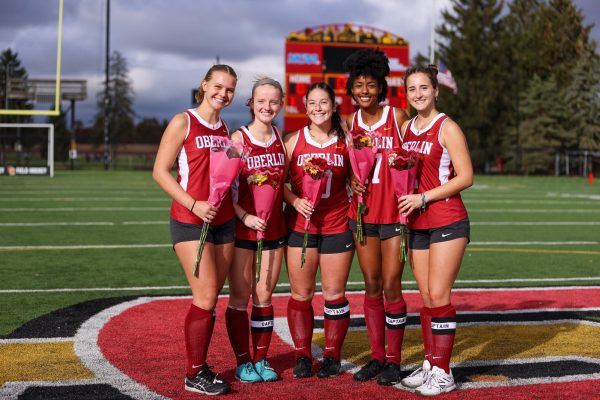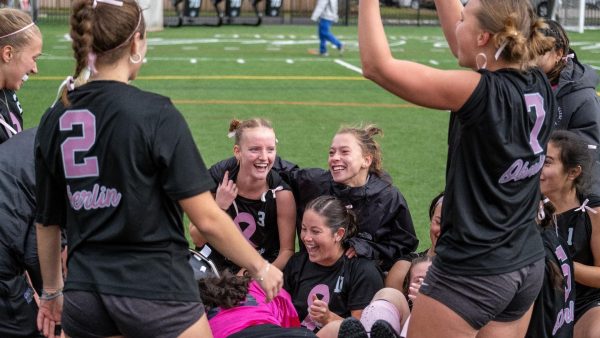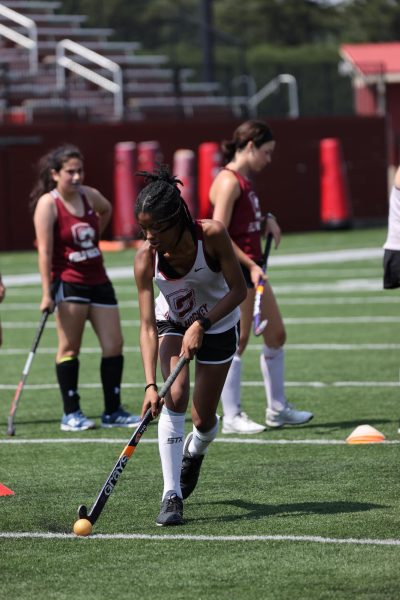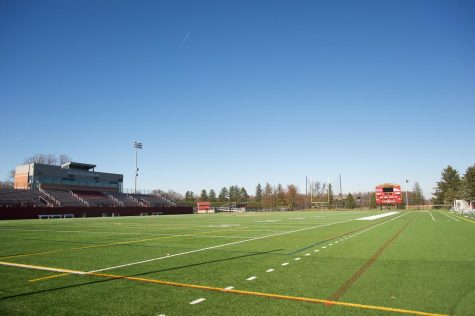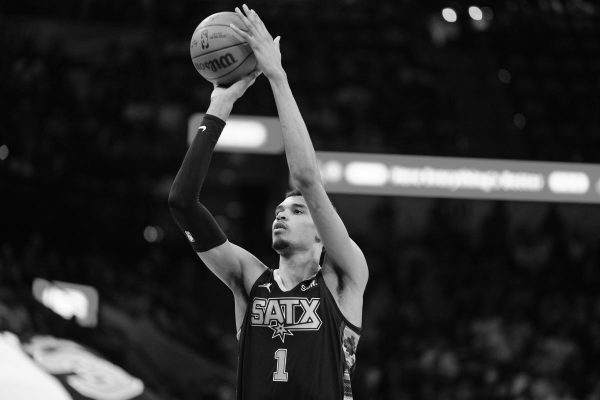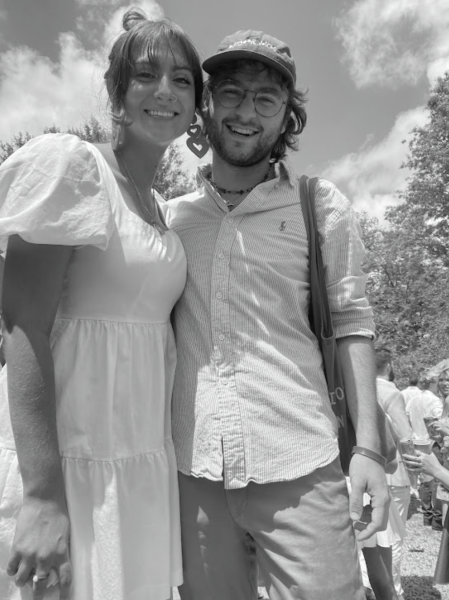Oberlin Athletics Community Provides Sense of Family for Student-Athletes
Following graduation, student-athletes often lose touch with the sports they had poured their hearts into for so long, but the bonds they created in their time at Oberlin last long after they leave campus. Athletics alums often turn to one another for advice, career networking, and friendship post-grad.
For volleyball graduate Emily Kelkar, OC ’19, surprisingly, the love for sport continues to be a prominent part of her daily life.
“I currently live in [New York City] where I coach volleyball, tennis, and softball, including a varsity volleyball team,” she said. “An Oberlin volleyball [alumna], Lola Gatti, [OC ’18], actually helped me get this job.”
The vast network of Oberlin Athletics alumni has helped many graduating students to feel more confident in their relationships with one another — they know that they can always keep in touch and reach out to their teammates at any time.
For field hockey alum Meg Parker, OC ’19, keeping in touch with her teammates enabled her to secure her most recent job.
“With the network of alums of various connections to one another, I feel confident that I can reach out to fellow athletes if I ever am in need of job advice,” she said. “I know that with the family that we have bolstered, current athletes feel the same.”
Through their extensive time training together and community events, athletes are able to bond in especially unique ways. Additionally, the relationships they form with coaches — and the department as a whole — tie everyone together across different teams.
“For the first three years I was at Oberlin, we were lumped with other fall sports for lifts, so [we] were able to reach a mutual understanding of what we were each going through in terms of being an athlete,” Parker said. “People want to assume that the Athletics department is really solid and separated by team, but the actions by one team can influence the athletics as a whole. It’s all one nuclear family; how you build the community reflects on the whole department.”
Still, each team retains a unique culture of its own. Kelkar and Parker spoke on how these standards are upheld in both volleyball and field hockey.
“Every Saturday we would pregame together, which is where we got most of our bonding time, …especially preseason freshman year,” Kelkar said. “It was nice to have a built-in group of friends even before orientation. Having people older than you was great as well, because you could always go to them for advice or help, and they always made the underclassmen feel included.”
Parker believes that the field hockey team’s values were influenced by the lack of competitive pressure, which enabled them to bond in a way that they would not have been able to otherwise.
“Having a team where there was no expectation, besides being who you truly are, made an amazing environment where we wanted to do everything together,” Parker said.
Despite existing in different team environments, both Kelkar and Parker credit the like-mindedness of Oberlin students as being integral to their ability to come together both as athletes and members of the overarching school community. Parker, who was involved in many spaces on campus, including Student Senate, the ’Sco, and the Admissions Office, says she remains in touch with people across those spaces.
“The mission of community is something that bolsters the relationship between the athlete family and the greater Oberlin community,” she said. “The catalyst[s] for a lot of my friendships were the activities I involved myself in, but I feel like I was able to navigate so much more of Oberlin being on [the field hockey team]. I came out of Oberlin with a whole different perspective about how to be a friend and family member in a community that I would not have had if I didn’t play field hockey.”
Kelkar also discussed the camaraderie amongst Obies in spite of the different paths they each take.
“People make friends everywhere, but what’s cool about Oberlin is that everyone has the same kind of mindset in wanting to change the world,” she said. “It helps us empower each other. All of my friends took very different paths, but we continue to stay in contact.”
Fourth-year volleyball player Natasha Radic spoke about the community her team has created, citing how difficult COVID-19 made it to connect to one another at first.
“COVID definitely made things difficult, but I think as far as our team goes, we did the best we could with the circumstances,” she said. “We planned as many trips and activities as we could while still staying COVID-conscious, and I think we were able to retain as much normalcy as we could.”
Radic reiterated the idea that the Oberlin volleyball team functions as a family, a dynamic that the team was able to create despite some distance.
“My team has always been there to support one another, and if you ever need to lean on anyone for support, there’s so many sets of shoulders ready for you,” she said. “Just like any family, we may have occasional arguments, but at the end of the day we try to come together and work through any issues. We truly value everyone as a part of our family.”


